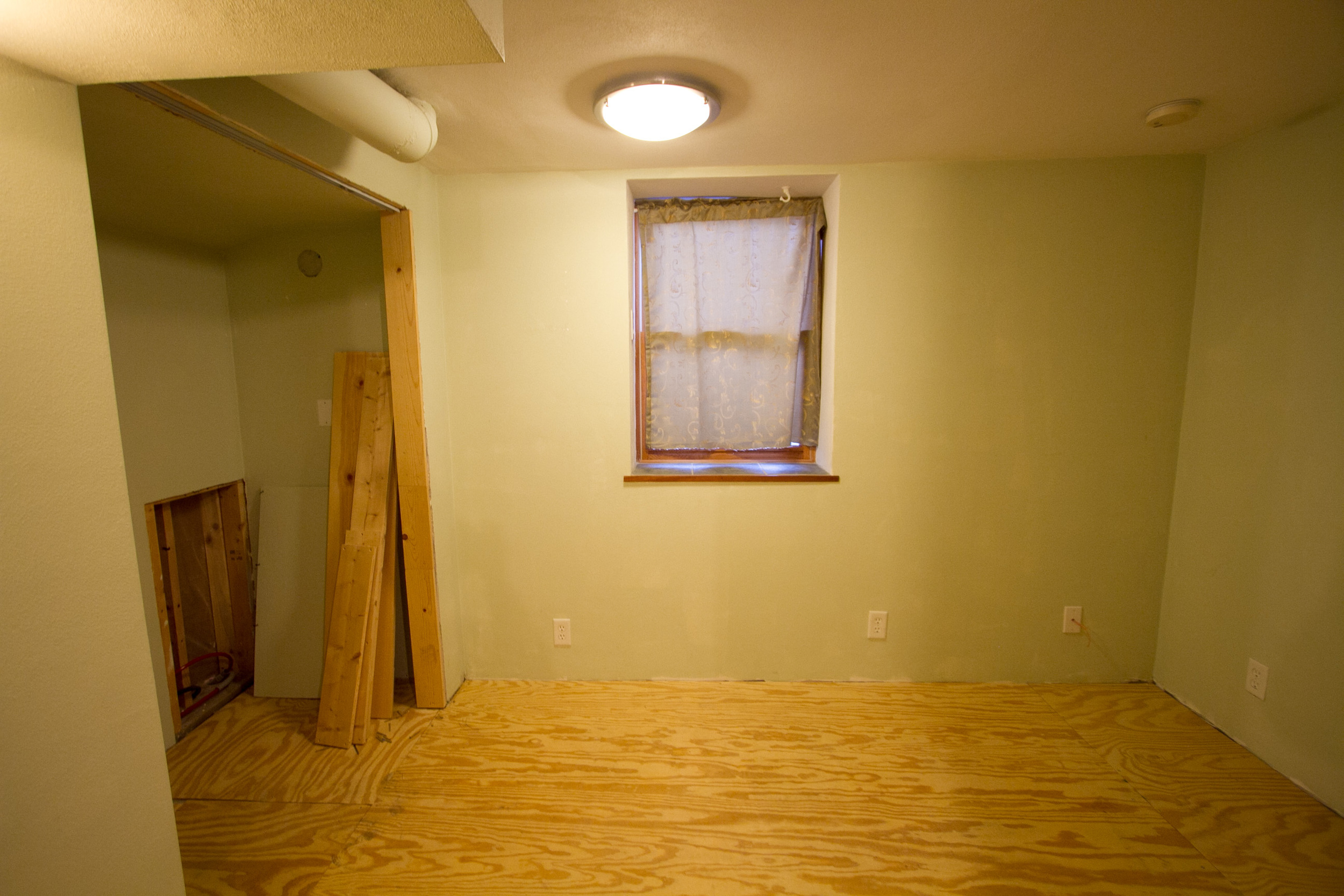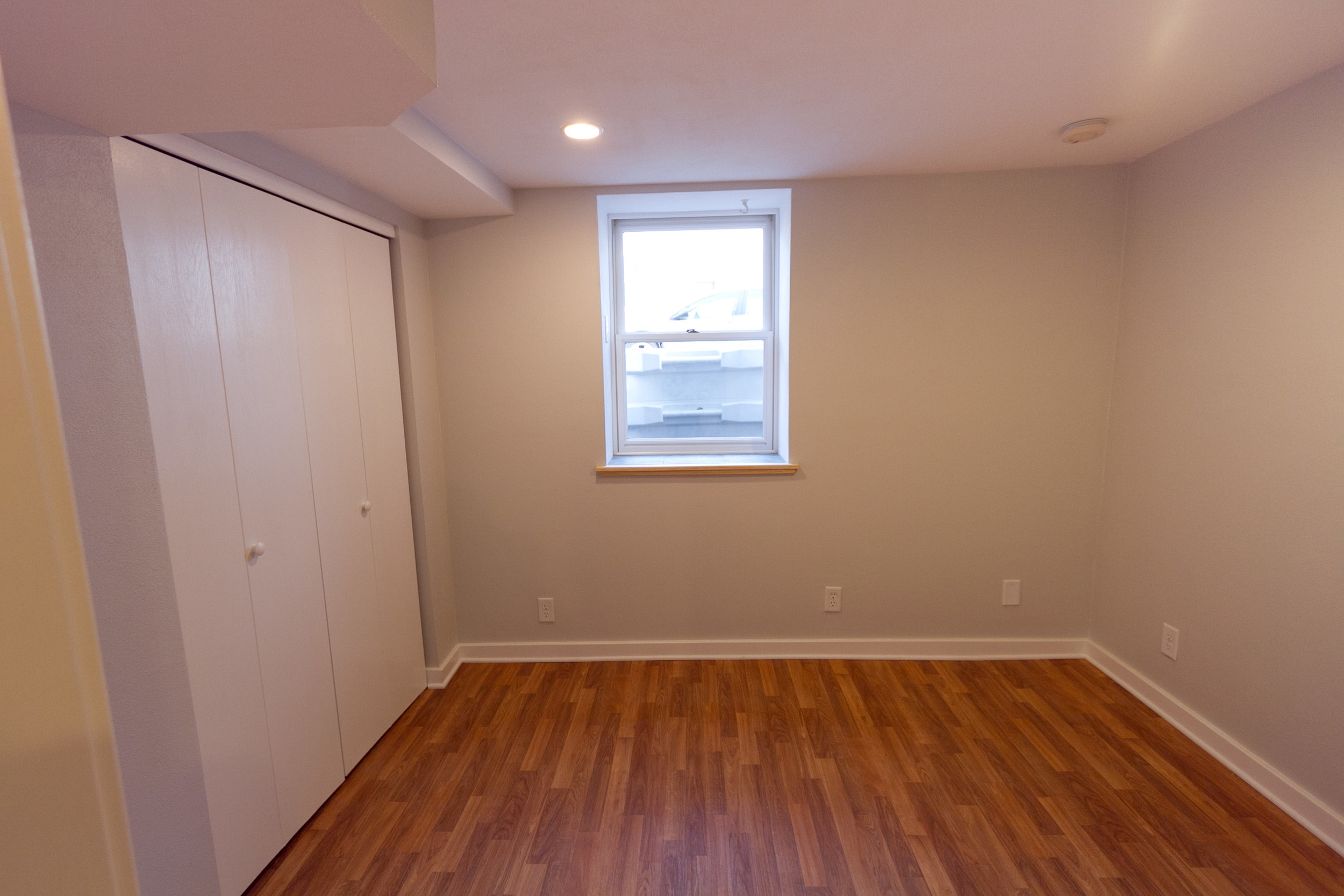How to Enjoy Working with Your Contractor
/{This post is part of our occasional, first-person series exploring adventures in home renovation.} My husband and I are on the tail end of renovating our basement. By the time we finish, it will have taken almost four months.
This was our first major household project and the first time we worked with a contractor. We encountered some unexpected setbacks -- like the drain that backed up right after the flooring was installed, causing sewer water to pool in our freshly refinished guest bedroom -- but these were flukes. Overall, it was a ridiculously smooth process.
[photo_gallery]
[image thumb_width="135" thumb_height="135" lightbox="true" custom_link="" title="office nook, before" caption="office nook, before"]http://www.roostinmadison.com/wp-content/uploads/2013/04/officeareabefore.jpg[/image] [image thumb_width="135" thumb_height="135" lightbox="true" custom_link="" title="office nook, almost finished" caption="office nook, almost finished"]http://www.roostinmadison.com/wp-content/uploads/2013/04/officeareaafter.jpg[/image] [image thumb_width="135" thumb_height="135" lightbox="true" custom_link="" title="bedroom, before" caption="bedroom, before"]http://www.roostinmadison.com/wp-content/uploads/2013/04/bedroom2before.jpg[/image] [image thumb_width="135" thumb_height="135" lightbox="true" custom_link="" title="bedroom, almost finished" caption="bedroom almost finished"]http://www.roostinmadison.com/wp-content/uploads/2013/04/bedroom2after.jpg[/image] [/photo_gallery]
You can find a lot of information online about how to hire a contractor -- questions to ask, red flags to look for, expectations to make clear up front. But it's harder to find information about how to enjoy working with your contractor once you think you've found the right fit. We went into this experience almost completely blind -- and we've emerged on the other side with a much better understanding of what is, at its core, one of the most important relationships you'll develop in your life as a homeowner.
Here are a few lessons we've learned along the way:
1. Make sure you've chosen someone you can trust. One way to do that is to spend time with your contractor before committing to a project, to make sure their style is a good match for your own. Take time to walk through different approaches to the project at hand. Homeowners often turn to home renovation to solve problems (not enough elbow room in the kitchen, poorly finished spaces done by a previous owner, etc.) -- taking the time to examine the problem from multiple angles gives you the chance to fully vet your contractor's sensibilities, and may result in a more flexible, better-fitting solution.
2. Treat your contractor as a partner -- not an employee. You'll get the most out of the experience if you treat this relationship from a place of partnership. Be respectful of their expertise, ask questions, engage their creative problem-solving. Cast yourself as partner and (if you're like me!) project manager. Some people prefer to remain passive, handing over the project at the start and not checking in until it's done (and I know some contractors prefer this!), or they come from the opposite end of the spectrum, micro-managing in a way that can feel overbearing and disrespectful. We fell somewhere in the middle, acting as equal partners and letting our contractor and sub-contractors know that we cared about the work and were paying attention; It's impossible to prove, but I really think it helped us end up with a final product we love.
3. Be a good host(ess). Depending on the size of your home, you, your contractor, and their sub-contractors will be sharing close quarters. Get to know them. Learn everyone's names. Make an extra pot of coffee and offer everyone a cup when they arrive. At the end of the day, go out of your way to thank them for their hard work. Basically, be polite and respectful -- because you're a good person, because you mean it, and because it creates goodwill that can come in handy down the road.
For example, we learned our HVAC guy shares my husband's love of presidential biographies; within a week, they were swapping books and reading lists. Our master carpenter happens to be a longtime fan of the environmental organization where my husband works; they had fun sharing outdoor-adventure stories. Over the course of the project, six or seven guys were working in our home, and to varying degrees, we got to know them all, at least a little.
When problems arose (and problems will always arise), our contractor and subcontractors were remarkably diligent and thoughtful about figuring out solutions. At one point, the master carpenter was explaining to our contractor how he was going to hang shelves in our basement bathroom; of the two methods he could use, one was more complicated but resulted in a slightly more polished look. In explaining why he chose the more complicated method, I overheard him say, "I really like Carrie and Joe -- I want to do this for them." I trust our contractor and his subcontractors do a great job wherever they work, but I also know that having a personal connection, however minor, can inspire a lot people to go above and beyond what's required.
4. Take the opportunity to learn. If you're like us, it's not often you have a cast of home improvement experts setting up camp in your house -- so make the most of it! Don't get in their way while they're working and be respectful of the space and time they need to do their jobs; but when appropriate, ask questions. Show an interest in their expertise. Ask them how things work. A good contractor or subcontractor will take pride in their work and will appreciate the chance to explain it. At the end of the project, you'll not only have a beautifully refinished space, you'll have newly acquired knowledge that will almost always be helpful to you later.
A few of the things we learned during our project, just by asking: How to spot a possible sewer line blockage BEFORE your drains overflow; how to masterfully use a caulk gun; how to paint concrete walls and floor; how to adhere carpet to wood; how to use a miter saw; the list goes on and on.
5. Stay in regular communication. Your contractor should give you an itemized list of all the tasks required to finish your project (if they don't, ask for one). Keep a copy of this nearby during the project, so you can make sure that everything you agreed to is getting done. As new things come up (and they will always come up), keep a running list. Regularly touch base with your contractor, to go over what's being done, when any new things will be incorporated into the work plan, and if things are going as expected. If problems arise, or if changes need to be made to your original agreement, it's best to know as soon as possible, so you can work together to create an alternative plan.
Luckily, I was home every morning and afternoon while our contractor was here, so I could talk with him in person. I kept a running list of all the new things we decided to add mid-project (inset shelves in the bathroom, for example), and I regularly emailed him an updated copy of the list, to make sure we were both clear regarding expectations. Once a week or so, we asked him whether he was happy with how things were going. By staying in regular communication, a process that otherwise might have been confusing or vague instead felt clear and manageable.
The lessons we learned were particular to our experience, expectations, and personalities. And at the end of the day, we feel incredibly lucky that our experience was so positive. So, what about YOU? If you've worked with contractors in the past, what advice would you add to this list? If your experience was positive, what made it that way? And if it wasn't, what would do differently next time?



